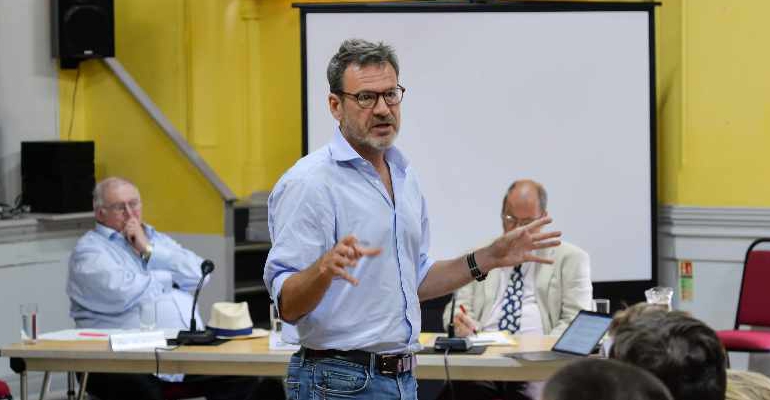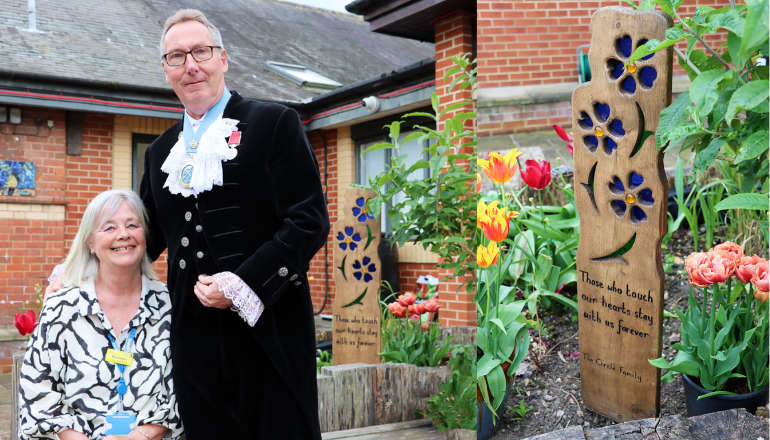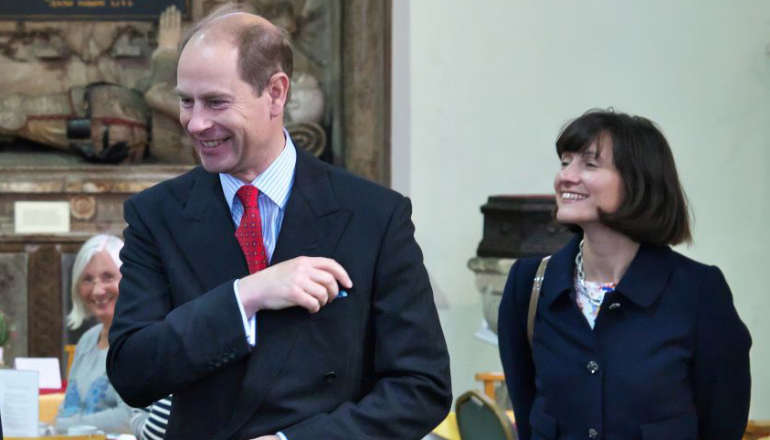
Isle of Wight MP, Bob Seely, has joined forces with Action Fraud to help Islanders ensure they only donate to registered charities this Christmas.
Figures from the national fraud reporting centre show that almost £350,000 of charitable donations ended up in the pockets of criminals over the festive period last year.
Bob Seely is urging people to check before giving to help ensure their donations reach genuine charities this Christmas.
Action Fraud, the Charity Commission, and the Fundraising Regulator have warned that while the vast majority of fundraising appeals and collections are genuine, criminals can set up fake charities, or even impersonate well-known charitable organisations, to deceive victims.
By giving to a registered, regulated charity this Christmas, Islanders can be assured that their money will be accounted for in line with charity law by checking the Charity Commission’s register of charities.
Mr Seely is urging everyone to be vigilant to ensure they have a #FraudFreeXmas this year.
Mr Seely said:
“I have been heartened to witness the generous community spirit that Islanders have demonstrated this year and I would like to thank all those who have been looking out for vulnerable neighbours and friends.
“I don’t want Islanders to get caught out by these scams, so I urge people to be vigilant against charity scams and make sure they are donating to genuine registered charities. There are lots of charities who need our help at the moment, let’s make sure that our donations get to those who need it.”
Helen Stephenson CBE, Chief Executive of the Charity Commission, said:
“Christmas is always a time of generous charitable giving, and that’s to be celebrated. This year it comes as charities face immense financial strain after heroic efforts to support some of society’s most vulnerable people through the pandemic.
“This means it’s more important than ever to ensure that when we reach into our pockets, our festive contributions don’t go astray. That’s why we’re urging everyone to give with their head as well as their heart and check before they give.”
Previous research from the Charity Commission and the Fundraising Regulator revealed that less than half of people that give to charity usually make checks before donating.
Action Fraud, the Charity Commission, and the Fundraising Regulator say following these simple steps will ensure donations go to the right place:
- Make sure the charity is genuine before giving any financial information. Look for the registered charity number on their website. You can check the charity name and registration number at https://www.gov.uk/find-charity-information.
- You can also check if a charity is registered with the Fundraising Regulator. All charities registered here have made a commitment to good fundraising practice: https://www.fundraisingregulator.org.uk/directory.
- If you’re approached by a collector on the street or at your door, ask to see the collector’s ID badge. You can also check whether the collector has a licence to fundraise with the local authority, or has the consent of the private site owner.
- Don’t click on the links or attachments in suspicious emails, and never respond to unsolicited messages and phone calls that ask for your personal or financial details – even if it’s in the name of a charity.
- To donate online, type in the address of the charity website yourself rather than clicking on a link. If in any doubt, contact the charity directly about donating.
- Be cautious when donating to an online fundraising page. Fake fundraising pages will often be badly written or have spelling mistakes. When donating to an online fundraising page, only donate to fundraising pages created by someone you know and trust.
- After making these checks, if you think that a fundraising appeal or collection is fake, report it to Action Fraud online at actionfraud.police.uk or by calling 0300 123 2040.

 Traffic Advice Issued For Walk The Wight
Traffic Advice Issued For Walk The Wight
 Hovertravel's Hoverbus Showcases All-New Look
Hovertravel's Hoverbus Showcases All-New Look
 Bear Grylls Pays Homage To Young Islander Ginny Following Ultimate Scouting Award
Bear Grylls Pays Homage To Young Islander Ginny Following Ultimate Scouting Award
 Southern Vectis To Open May Community Fund For Worthy Causes Across Isle Of Wight
Southern Vectis To Open May Community Fund For Worthy Causes Across Isle Of Wight
 Terrorism Plot Teen From Isle Of Wight Further Sentenced
Terrorism Plot Teen From Isle Of Wight Further Sentenced
 Ryde's Waterside Pool Secures £254,000 Of Government Refurbishment Funding
Ryde's Waterside Pool Secures £254,000 Of Government Refurbishment Funding
 Flood Warnings Eased But More 'Unsettled' Weather On The Way
Flood Warnings Eased But More 'Unsettled' Weather On The Way
 Sculpture To Commemorate People Affected By Dementia
Sculpture To Commemorate People Affected By Dementia
 Police Appeal Launched Following East Cowes Waitrose Alcohol Theft
Police Appeal Launched Following East Cowes Waitrose Alcohol Theft
 Unmanned Dinghy Towed To Safety By Cowes Lifeboat
Unmanned Dinghy Towed To Safety By Cowes Lifeboat
 Red Squirrel Property Shop Ventures Into Dubai Property Market
Red Squirrel Property Shop Ventures Into Dubai Property Market
 Isle Of Wight MP Bob Seely Announces Blueprint To Fund A3055 Improvements
Isle Of Wight MP Bob Seely Announces Blueprint To Fund A3055 Improvements
 New 2024/5 Annual Waste And Recycling Guide Out Soon
New 2024/5 Annual Waste And Recycling Guide Out Soon
 Platform One Announces Winner Of 2024 Wight Noize Competition
Platform One Announces Winner Of 2024 Wight Noize Competition
 Royal Duke To Visit As Newport Minster Reopens
Royal Duke To Visit As Newport Minster Reopens
 Isle Of Wight Council To Support 'No Mow May' 2024
Isle Of Wight Council To Support 'No Mow May' 2024
 English Coastal Path Complication Amid Osborne House Queen Victoria Collection Fears
English Coastal Path Complication Amid Osborne House Queen Victoria Collection Fears
 Seaview Pub Picks Up National Award
Seaview Pub Picks Up National Award
 Isle Of Wight Radio Child Of Wight Awards 2024 Nominations Now Open
Isle Of Wight Radio Child Of Wight Awards 2024 Nominations Now Open
 Fire Service Issues Water Safety And Mud Rescue Advice For Isle Of Wight
Fire Service Issues Water Safety And Mud Rescue Advice For Isle Of Wight


